Which of these carbocation will undergo favourable rearrangement?
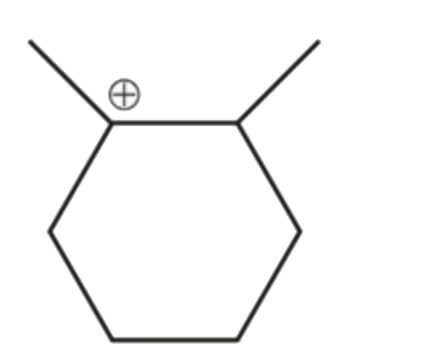
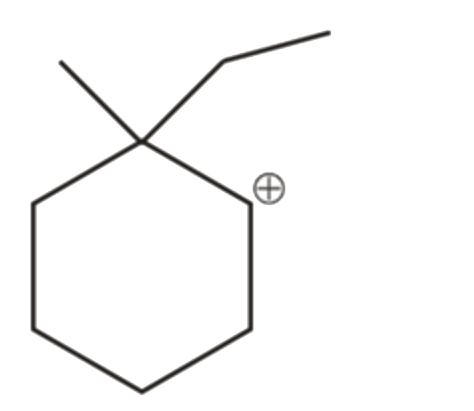
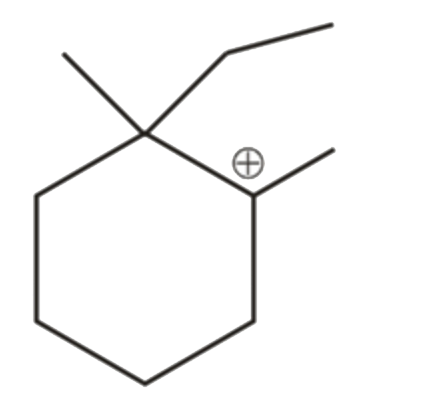
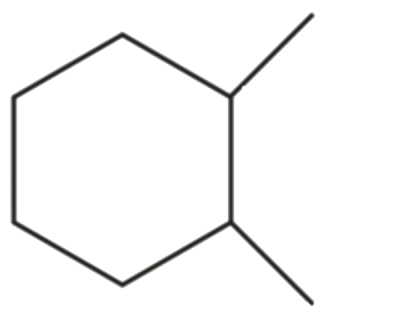
The correct Answer is:B
To determine which carbocation will undergo favorable rearrangement, we need to analyze the stability of the carbocations involved and see if rearrangement leads to a more stable structure. Here’s a step-by-step solution:
Step 1: Understand Carbocation Stability
Carbocations are classified based on the number of alkyl groups attached to the positively charged carbon:
- Tertiary (3°) carbocation: More stable due to hyperconjugation and inductive effects from three alkyl groups.
- Secondary (2°) carbocation: Less stable than tertiary but more stable than primary.
- Primary (1°) carbocation: Least stable.
Step 2: Identify the Carbocations
Assume we have several carbocations to analyze:
1. Tertiary Carbocation (3°)
2. Secondary Carbocation (2°) with one methyl and one ethyl group
3. Tertiary Carbocation (3°)
4. Secondary Carbocation (2°)
Step 3: Analyze Each Carbocation for Rearrangement
1. First Carbocation (Tertiary):
- Already a tertiary carbocation.
- Rearrangement will not lead to increased stability (remains tertiary).
- Conclusion: No favorable rearrangement.
2. Second Carbocation (Secondary with Methyl and Ethyl):
- This is a secondary carbocation.
- If a methyl or ethyl group migrates, it can become a tertiary carbocation.
- Conclusion: This carbocation will undergo favorable rearrangement due to increased stability.
3. Third Carbocation (Tertiary):
- Similar to the first, it is already a tertiary carbocation.
- Rearrangement will not lead to increased stability.
- Conclusion: No favorable rearrangement.
4. Fourth Carbocation (Secondary):
- This is also a secondary carbocation.
- Rearrangement does not lead to a more stable structure (remains secondary).
- Conclusion: No favorable rearrangement.
Step 4: Final Conclusion
The only carbocation that will undergo favorable rearrangement is the second carbocation, as it can rearrange to form a more stable tertiary carbocation.
Summary
The carbocation that will undergo favorable rearrangement is the second one, which is a secondary carbocation that can rearrange to a tertiary carbocation.
---
Carbocations are classified based on the number of alkyl groups attached to the positively charged carbon:
- Tertiary (3°) carbocation: More stable due to hyperconjugation and inductive effects from three alkyl groups.
- Secondary (2°) carbocation: Less stable than tertiary but more stable than primary.
- Primary (1°) carbocation: Least stable.
Assume we have several carbocations to analyze:
1. Tertiary Carbocation (3°)
2. Secondary Carbocation (2°) with one methyl and one ethyl group
3. Tertiary Carbocation (3°)
4. Secondary Carbocation (2°)
1. First Carbocation (Tertiary):
- Already a tertiary carbocation.
- Rearrangement will not lead to increased stability (remains tertiary).
- Conclusion: No favorable rearrangement.
- This is a secondary carbocation.
- If a methyl or ethyl group migrates, it can become a tertiary carbocation.
- Conclusion: This carbocation will undergo favorable rearrangement due to increased stability.
- Similar to the first, it is already a tertiary carbocation.
- Rearrangement will not lead to increased stability.
- Conclusion: No favorable rearrangement.
- This is also a secondary carbocation.
- Rearrangement does not lead to a more stable structure (remains secondary).
- Conclusion: No favorable rearrangement.
The only carbocation that will undergo favorable rearrangement is the second carbocation, as it can rearrange to form a more stable tertiary carbocation.
The carbocation that will undergo favorable rearrangement is the second one, which is a secondary carbocation that can rearrange to a tertiary carbocation.
Similar Questions
Knowledge Check
Which of the following carbocation will undergo rearrngement ?
A B
B CCH3−C∣CH3H−⊕C=ODCH3−NH−⊕CH−C∣CH3H−CH3
CCH3−C∣CH3H−⊕C=ODCH3−NH−⊕CH−C∣CH3H−CH3Which of the following alkyl halide undergo rearrangement in SN1 reaction ?
ACH3−CH3∣C∣CH3−C∣IH−CH3B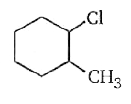 C
C DAll of these
DAll of theseWhich of the following alcohols undergo rearrangement during dehydration reaction ?
A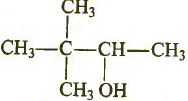 B
B C
C D
D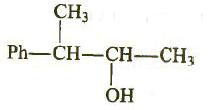
Which of the following carbocation is most stable?
View SolutionWhich of the following carbocations is most stable ?
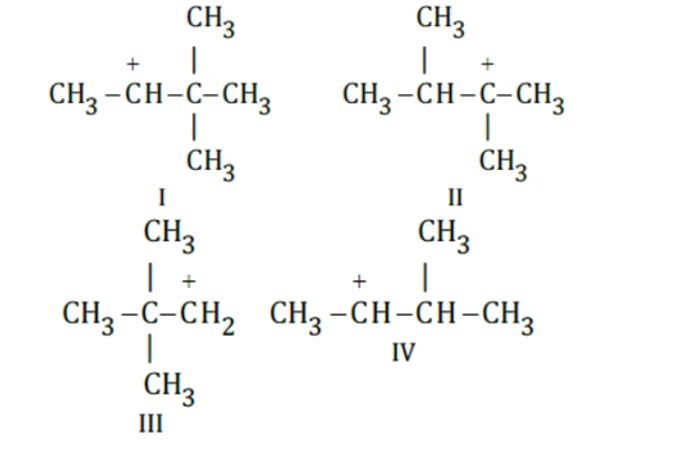
View SolutionWhich of the following carbocation is most stable
View SolutionWhich of the following carbocations is most stable ?
View SolutionWhich of the following carbocations is least stable ?
View Solution